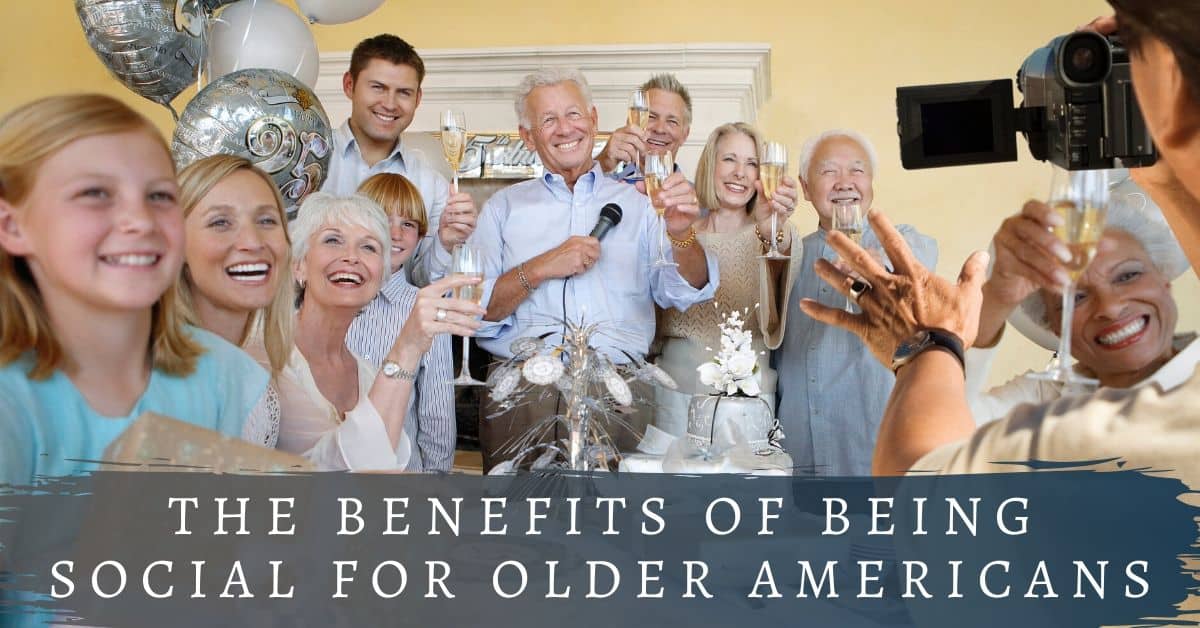We humans are social beings. We rely on shared experience to flourish and thrive. The richness of our social life and interactions can contribute to our mental and physical health. This cannot be more true as we age, but sadly for many older Americans socialization becomes much more of a challenge.
Hearing Loss and Social Life
As we age it is common for your hearing to decline. This is referred to as Age-related hearing loss (presbycusis). Approximately one in three people in the United States between the ages of 65 and 74 has hearing loss, and nearly half of those older than 75 have difficulty hearing. While this is normal it should definitely not be ignored. When hearing loss sets in you start to miss words, phrases and pitches that are essential to communication. It may not seem like a big deal to have to ask people to repeat themselves but when you find yourself doing this all the time it becomes exhausting and can affect you confidence. It may seem easier to check out of the situation all together which can lead to social isolation and depression.
Who is affected by social isolation?
Everyone is susceptible to loneliness and social isolation, but older people are the most susceptible. As your hearing goes it may be harder to drive as traffic noises become harder to react to. If your mobility is compromised then it is harder to reach out and connect to the people you love. If you have experienced the death of a partner or close relative then this can be debilitating to recover from. It is important however to stay active and social for the benefit of your physical and mental health.
The health effects of social isolation
A recent study found that social isolation can be more of a threat to your health than not exercising at all, and smoking 15 cigarettes a day or drinking six alcoholic beverages a day. Isolation leads to increased risk of depression, anxiety, insomnia and exhaustion.
Improve your Social Life
To avoid the negative affects of hearing loss on your social life it is important to stay active. The first step is to make sure you are not ignoring your hearing loss. If you haven’t already, make sure to schedule a hearing test and make sure you are actively seeking a solution to your hearing problem. Hearing aids are the most commonly effective treatment and can give you back the independence you need to live a healthy social life. Once you have your hearing under control then it is much easier to establish and maintain supportive connections that are an essential part of life.
If you live alone, then you have to work extra hard to make sure to get out regularly. Reach out to friends and family to stay connected. Try joining a club, taking a class about something you’ve always wanted to learn about or volunteer at an organization you feel passionate about. All these things add to feelings of connectedness that keep us excited and engaged in our life.
Don’t Ignore Hearing Loss
It is just so important to make sure your hearing is at it’s best as you age. Even the most active person will not reap the benefits of social interaction if they cannot hear what people are saying to them. Make sure to get hearing aids that work for you and the activities you love to do. A study by the American Academy of Audiology found that for adults older than 50, those with untreated hearing loss were more likely to report depression, anxiety and less likely to participate in organized social activities in comparison to those who treated their hearing loss with hearing aids.
Hear better with hearing aids
Hearing aids have been shown to improve self-confidence, independence and improve the social life of seniors. Not treating your hearing loss is just dangerous when you consider all the health risks associated with not hearing. Contact Us at Lifestyle Hearing Solutions to schedule a hearing test today and get on the road to a rich and social life. You have so much to gain from a life of hearing.

